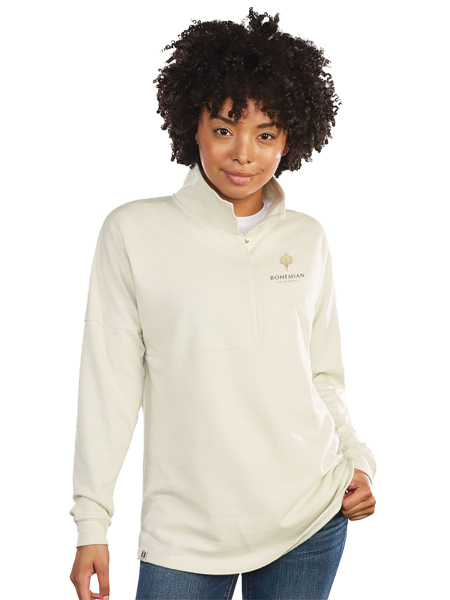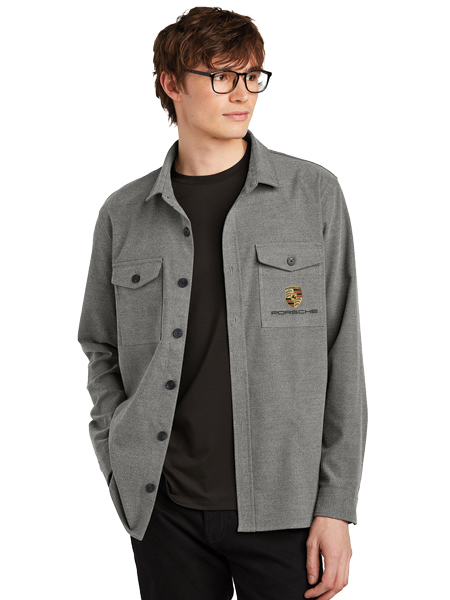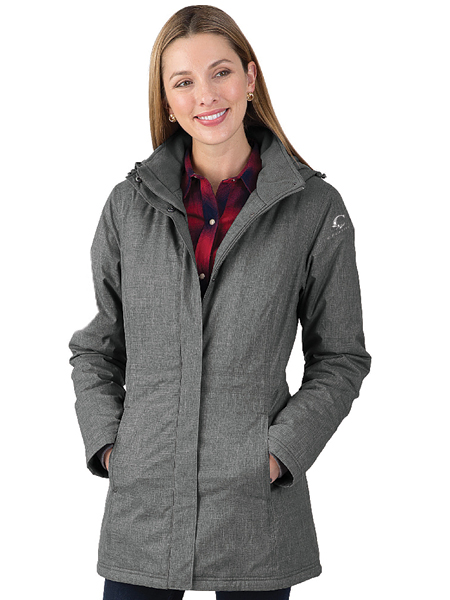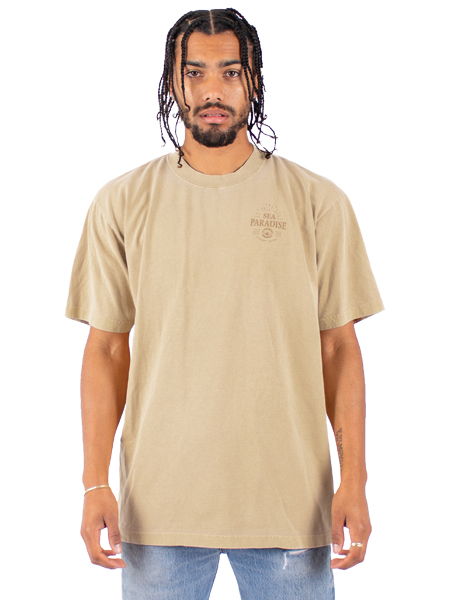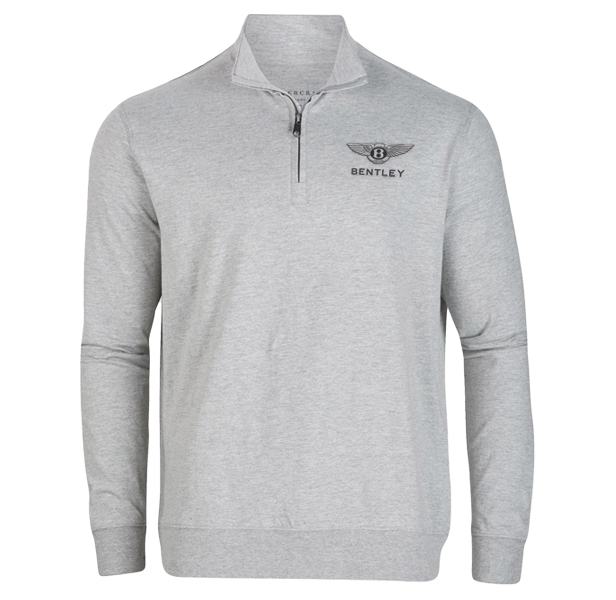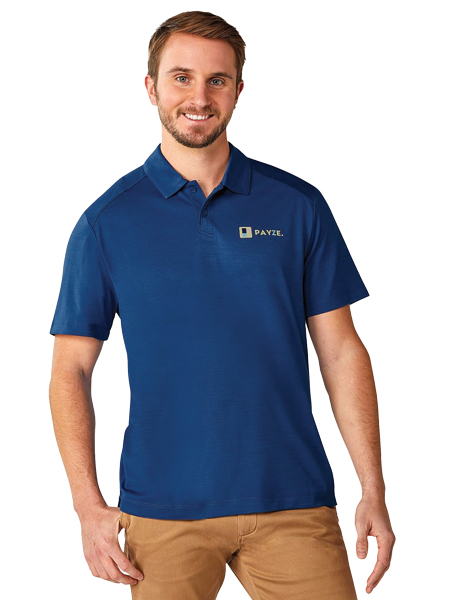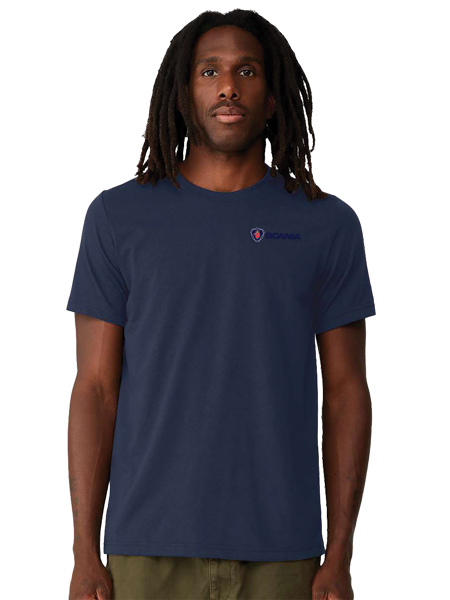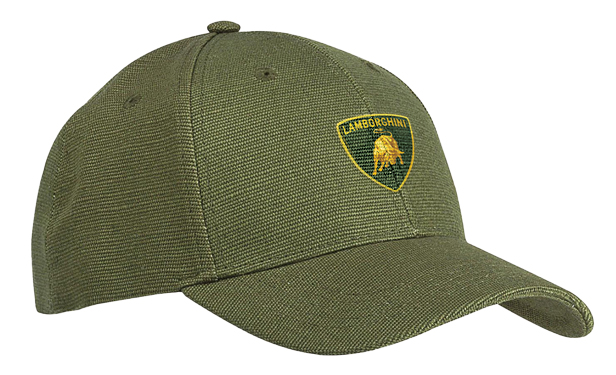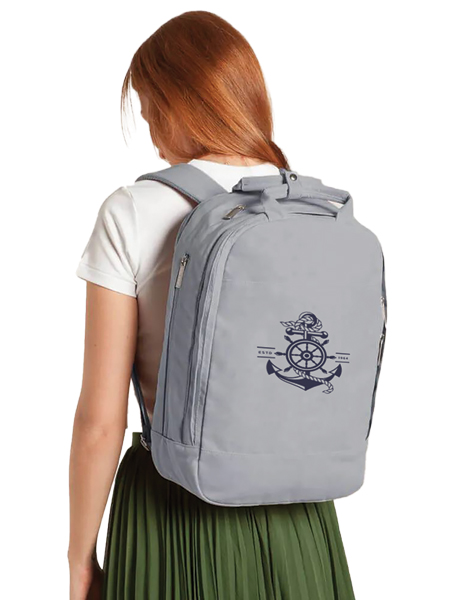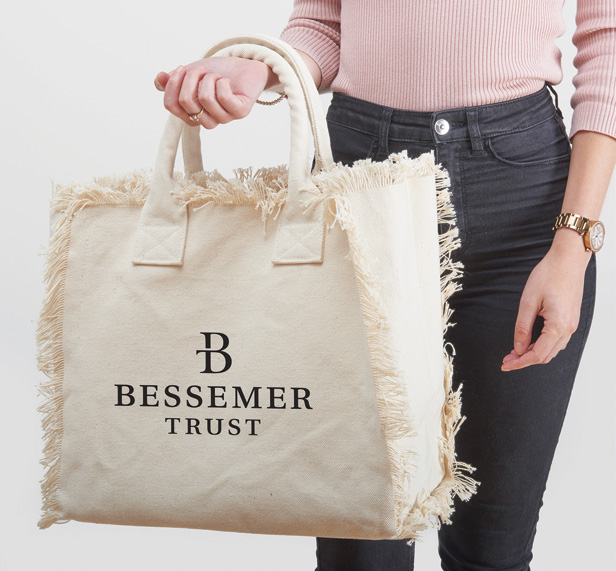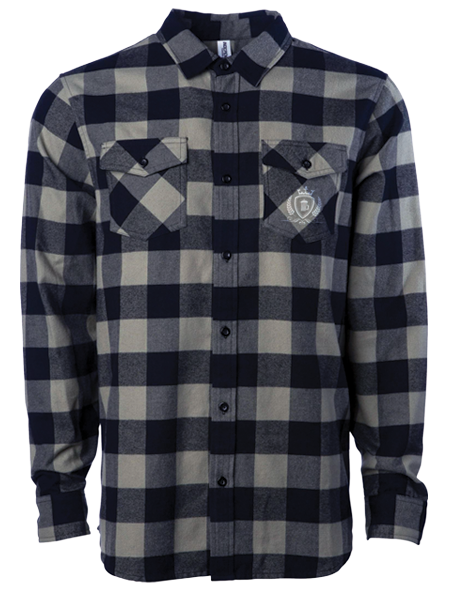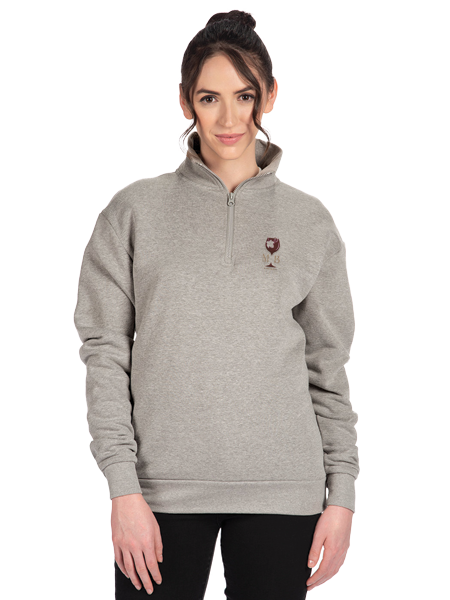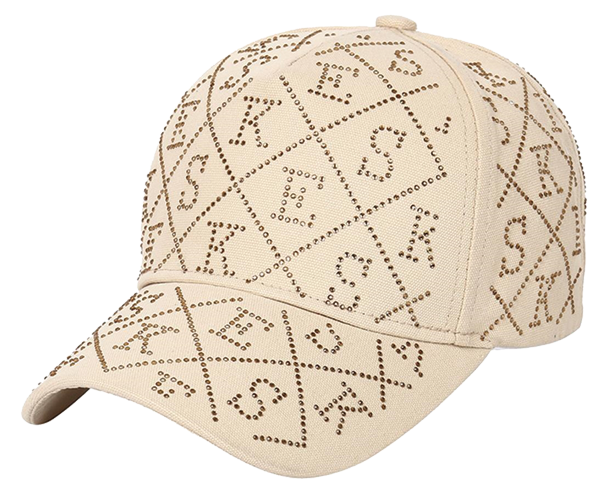Product Hub January 09, 2024
Top Apparel Trends for 2024
Quality, comfort and positivity are woven into the most in-demand pieces for the year.
“Dress for the occasion” has taken on a new meaning recently. Global issues continue to shape macro-trends in apparel, and wardrobes are aligning not just by being mindful of trends, but also of environmental and inflation concerns. Fashion is increasingly about who we are and the world we aspire to create – not just about what we’re wearing. Michael Martinelli, apparel category manager for Top 40 supplier PCNA (asi/66887), says that issues such as climate change and economic/social uncertainties “are all encompassing.” With that in mind, consumers have grown more curious about the story behind each product they purchase or wear – and thus we’re asking more of each item in our closets, Martinelli notes. “We need pieces that meet all of these requirements,” he says. “We have one wardrobe, and that’s why these trends go everywhere.” Here’s a look at three promotional apparel trends for 2024 – all macro-trends that will resonate among the buyers this year and beyond.
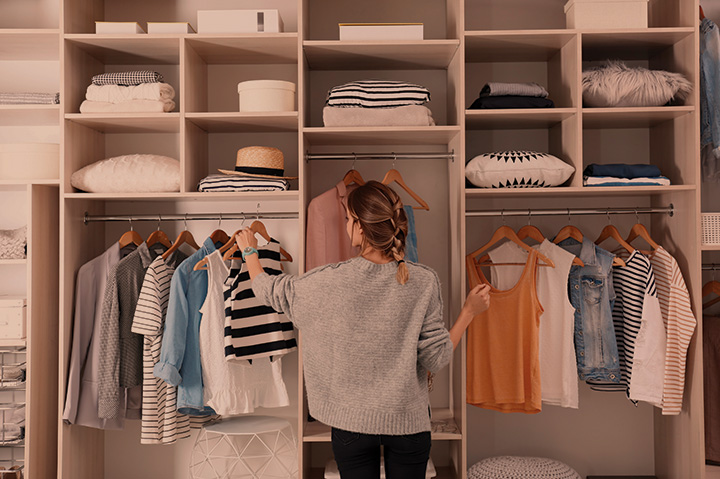
Quiet Luxury
Why now: At a time when shoppers’ dollars must go further – about 65% of Americans said last summer that stifling inflation was a major problem, according to the Pew Center – they’re buying less, but better, apparel. So goes the quiet luxury movement, where quality remains the defining element, Martinelli says.
Social media and influencers have “a really big role to play” in quiet luxury, adds Victoria Thomas, director of marketing at BELLA+CANVAS (asi/39590). “It’s accessible luxury. You can make something look and feel very premium, luxurious and simple.” Suppliers and distributors have taken notice, moving away from fast fashion and offering end-users more sought-after, elevated basics that exude sophistication. “These are meant to be in your closet for years to come,” Martinelli notes. Indeed, traditional fits are a mainstay of quiet luxury, says Ted Church, owner of Boulder, CO-based Anthem Branding (asi/122353). They’re well-tailored but not form fitting or too tight – “the Brooks Brothers fit,” he adds.
Decoration ideas: Think subtle branding, tone on tone, and back and arm hits. “We’re moving away from the left-chest approach,” Martinelli says, “but digital transfer is having a moment because it’s luxury and sustainability.” These types of sophisticated logos look especially fresh on great-quality outerwear, full-zips and quarter-zips, he adds. Church says, however, that there’s still room for traditional logo placements on luxury-driven pieces, and that woven labels sewn into seams, or internal neck labels that are sewn down, can make promo apparel feel even more retail.
Lauren Smith, brand merchandiser at Top 40 distributor Boundless (asi/143717), says any deco added to these minimalistic looks should be small. “Put a logo on the sleeve above the wrist, and do it in a tonal color,” she shares. “That’s very chic.” Smith says larger logos still look good when they’re puffy and monochromatic, and with clever placements such as back of neck. Further, quiet luxury’s endurance is also owing to the fact that it’s easy to pull off at a reasonable price point. “Dupes of those trending items are so easy to find and replicate,” she explains. “You don’t need a big Chanel logo.” To steal the look, Smith shares, go into the details: the seams and hems; the neckline; a raglan sleeve; a V-inset on a crew neck. “These details are easy to add,” she says. For example, “A quiet luxury hoodie would be a three-panel hood and have the grommets dyed to match the color. That takes it up a notch.”
Target clients: From finance to tech, understated elegance works for various industries, meeting the demands of people who seek longevity and versatility in their wardrobes. “You see quiet luxury a lot in brand startups – people looking to launch their brand through print-on-demand – and also in tech and corporate gifting,” Thomas says. Millennials and Gen Z also love quiet luxury, Smith notes, in no small part because of the hit show Succession, “but it can span decades up to a much older crowd. That generation already doesn’t like to be covered in brands.”
Holloway women’s French terry henley (229775) from S&S Activewear (asi/84358)
Mercer+Mettle stretch twill overshirt (MM2020) from SanMar (asi/84863)
Women’s parka (5762) with Thinsulate lining from Charles River Apparel (asi/44620)
Physical & Mental Health
Why now: Thomas says the spotlight on employee mental and physical health has come to life now in apparel in a way it never has before. “It’s more widely spoken about in corporate environments – from working on work/life balance, to free telehealth and mental health via apps – and it’s coming up in decorated apparel,” she says. Thomas mentions brands like the Mayfair Group, which has used mental health “to fuel the graphic designs surrounding their influential brand.”
Likewise, Martinelli says one of the biggest changes in recent years is that now, all kinds of businesses are investing in wellness programs. It’s become a lifestyle rather than a fad, he notes, adding that customers want versatile pieces that work all day and match the intention behind such programs, with properties like stretch and cooling. One particular activity-friendly silhouette is trending again: The polo. “It’s on the runways, and not just in this industry,” he says. “That’s a key layering piece that helps solve all those wardrobe needs.”
Athleisure fits nicely into this trend; the category prominently features earth tones, gender-neutral looks and standard fits rather than oversize. “Many people are going back to the 6-ounce Gildan T-shirt or the Champion style – a boxy, heavy cotton tee,” Church says. “But it’s not oversized or streetwear. A lot of pigment-dyed stuff will continue in the more neutral colors, not the brights.”
Decoration ideas: Church says logos for athleisure and streetwear aren’t big and loud, but thoughtful and unique. “Surprise and delight are on trend,” he says, “as is not looking like everyone else. No more is it the same old product with a different logo slapped on.”
Martinelli says the digital transfer has stuck around in athleisure decoration, because it’s versatile and comfortable to wear on technical fabrics. Old-school transfers and screen prints didn’t offer this precise application and versatility, and embroidery isn’t always the most comfortable on this type of apparel. “So we’re seeing these treatments that hold the integrity of the product and its attributes,” he says. “Movement is so important.” Thomas shares this view, adding that a soft hand to the fabric can also play a role in how one feels. “It makes a real impact on people’s lives,” she says, “when they’re able to find a fabric that generates a feeling of comfort for them.”
Target clients: Athleisure’s ideal markets are numerous, Church notes: finance, tech and outdoor lifestyle brands, to name a handful. His company, Anthem Branding, works with many direct-to-consumer brands, and Church says everyday-wear pieces that live between streetwear and athleisure are popular with almost anyone. In particular, he calls out the quarter-zip fit: “It’s strong with tech and finance; that’s the new puffy vest.”
Shaka Wear garment dyed crewneck T-shirt (SHGD) from alphabroder (asi/34063)
Men’s quarter-zip pullover (BM5205) from Boxercraft (asi/41325)
Trimark men's polo (TM16312) with 34% recycled polyester from PCNA (asi/66887)
Sustainability
Why now: Whether and to what degree promo items are sustainable has become one of the most important purchase-making criteria in the industry, Martinelli says. Smith shares this view, adding that customers want backstories on brands, and to know how the garment is being made, and from what material.
There are evermore options to bring these products for the masses, and Church says he’s also noted an uptick in interest in “nearshoring,” as well as Made-in-the-USA. “More brands are offering these things, and it’s a feel-good from a people/planet situation,” he says.
For her part, Smith hears a growing call for not just recycling but upcycling. “Bigger brands in fashion are trying to move the needle, and trying to use what’s been scrapped,” she shares. “I really love that trend.” Upcycling also lends itself to an already much-loved vibe: “With upcycled items, the piece has a worn or vintage look because you’re not re-dying it, and that’s a huge trend now,” Smith adds. Sustainable apparel also means keeping a close eye on how manufacturing can make better use of resources: using less water and electricity, and building greener facilities and warehouses are all part of this ethos.
Promo for the Planet is your destination for the latest news, biggest trends and best ideas to help build a more sustainable and socially-responsible industry.
Thomas says BELLA+CANVAS is mindful of waste (both material and water) and is using recycled polyester with increasing frequency. Last fall the company introduced a 100% recycled tee. “We’re all more aware that we need to start taking action – big, small, whatever way you can,” she says. “Our industry has a responsibility to manufacture, source and print sustainably.”
Decoration ideas: Church and Thomas both say sustainability-minded clients are asking for water-based inks in logos; Church explains this is often due to concern about chemical runoff with regular dyes. Smith too is seeing interest in more environmentally friendly printing or dyeing. Some suppliers are even using natural, plant-based algae ink now. The packaging experience is part of sustainability as well, Smith says – largely marked by a move away from plastic toward fully recyclable fill and boxes.
Target clients: Sustainability has no real niche, Martinelli says. Simply put, everybody wants in on it. “We’re seeing it across all industries, not just the eco industry itself,” he adds. Smith calls out Gen Z, however, as the clear leader in the race toward a more earth-friendly promo industry: “They have a trust gap and are a very skeptical generation, and a big way to overcome that is brand awareness and telling the story behind it. Our sales partners tell us that sustainability and giveback programs are things Gen Z ask for.”
BELLA+CANVAS 100% recycled cotton-poly tee (3001ECO) with water-free dye from Staton Corporate and Casual (asi/89380)
Structured hemp baseball hat (EC7090) from econscious (asi/51656)
Recycled waxed canvas backpack (The Backpack) with 100% recycled poly lining from Day Owl (asi/48696)

Product Hub
Find the latest in quality products, must-know trends and fresh ideas for upcoming end-buyer campaigns.

